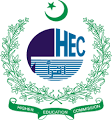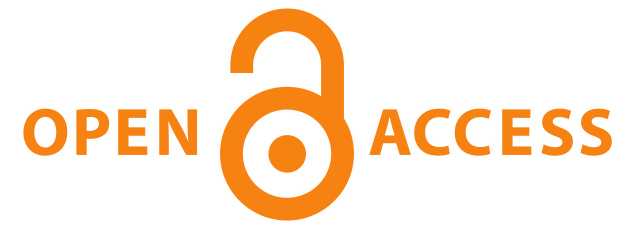HEC Approved "Y" Category Journal
Policy Statement
Ethical Statement
Duties and responsibilities of editors:
In addition to many general duties, such as constantly improving the quality and integrity of the journal, striving to needs of authors and readers, encouraging academic debate, and others, the editors accept an obligation to apply best will and practice to cope with the following responsibilities:
Editorial Board:
Editorial board generate from recognized experts in the field. The editor provide full names and affiliations of the members as well as updated contact information for the editorial office on the journal webpage.
Publication decisions:
The editor should be responsible for deciding which of the articles submitted to the journal should be published. The validation of the work in question and its importance to researchers and readers must always drive such decisions. The editor may be guided by the policies of the journal’s editorial board and constrained by such legal requirements, copyright infringement and plagiarism. The editor may confer with other editors or reviewers in making this decision.
Peer review process:
All of a journal’s content is subjected to peer-review. Articles submitted for possible publication are subjected to a double-blind, peer review process. Articles are first reviewed by editors. The editor may reject it out of hand either because it is not dealing with the subject matter for that journal or because it is manifestly of a low quality so that it cannot be considered at all. Articles that are found suitable for review are then sent to two experts in the field of the paper. Referees of a paper are unknown to each other. Referees are asked to classify the paper as publishable immediately, publishable with amendments and improvements, or not publishable. Referees’ evaluations usually include an explicit recommendation of what to do with the manuscript. Referees’ comments are then seen by the author.Editors should be ready to justify any important deviation from the described process. Editors should not reverse decisions on publication unless serious problems are identified.Editors should publish guidance to authors and reviewers on everything that is expected of them. This guidance should be regularly updated and will refer or link this code.
Fair play:
Editor should evaluate manuscripts for their intellectual content without considering race, gender, sexual orientation, religious belief, ethnic origin, citizenship, or political philosophy of the authors. Editors´ decision to accept or reject a paper for publication should be based only on the paper´s importance, originality and clarity, and the study´s relevance to the aim of the journal.
Confidentiality:
Editor and any editorial staff must not disclose any information about a submitted manuscript to anyone other than the corresponding author, reviewers, potential reviewers, other editorial advisers, and the publisher. Editors will ensure that material submitted remains confidential while under review.
Disclosure and conflicts of interest:
Unpublished materials disclosed in a submitted manuscript must not be used in an editor’s own research without the express written consent of the author. Privileged information or ideas obtained through peer review must be kept confidential and not used for personal advantage. Editors should recuse themselves (i.e. should ask a co-editor, associate editor or other member of the editorial board instead to review and consider) from considering manuscripts in which they have conflicts of interest resulting from competitive, collaborative, or other relationships or connections with any of the authors, companies, or (possibly) institutions connected to the papers. Editors should require all contributors to disclose relevant competing interests and publish corrections if competing interests are revealed after publication.
Publication Policy
For all submissions, the editorial committee will first conduct an inhouse review and if a submission is considered suitable, it will be sent to at least one national and one international reviewer. Mairaj strictly follows a triple-blind review policy and no exception is made in this regard. Usually, it takes 6-8 weeks for initial reports and revision can take up-to 4 additional weeks. If there is not consensus between the reviewers, opinion of a third expert can be requested. Mairaj publishes all accepted manuscripts quarterly a year in March, June, September and December therefore, authors might have to wait for some time for the publication of their accepted works.
REVIEW POLICY
We follow the double blind peer review policy. Under this policy, we remove the name of the author(s) before sending an article to the reviewers. Likewise, the name of the reviewer is never revealed before the author.
COPYRIGHT POLICY
All rights reserved. No part of the publications of URDU may be copied, reproduced, published, sold, distributed, transmitted in any form or by any means, including photocopying, scanning, recording, or other electronic or mechanical methods, without the prior written permission of the Editor or author of the article.






